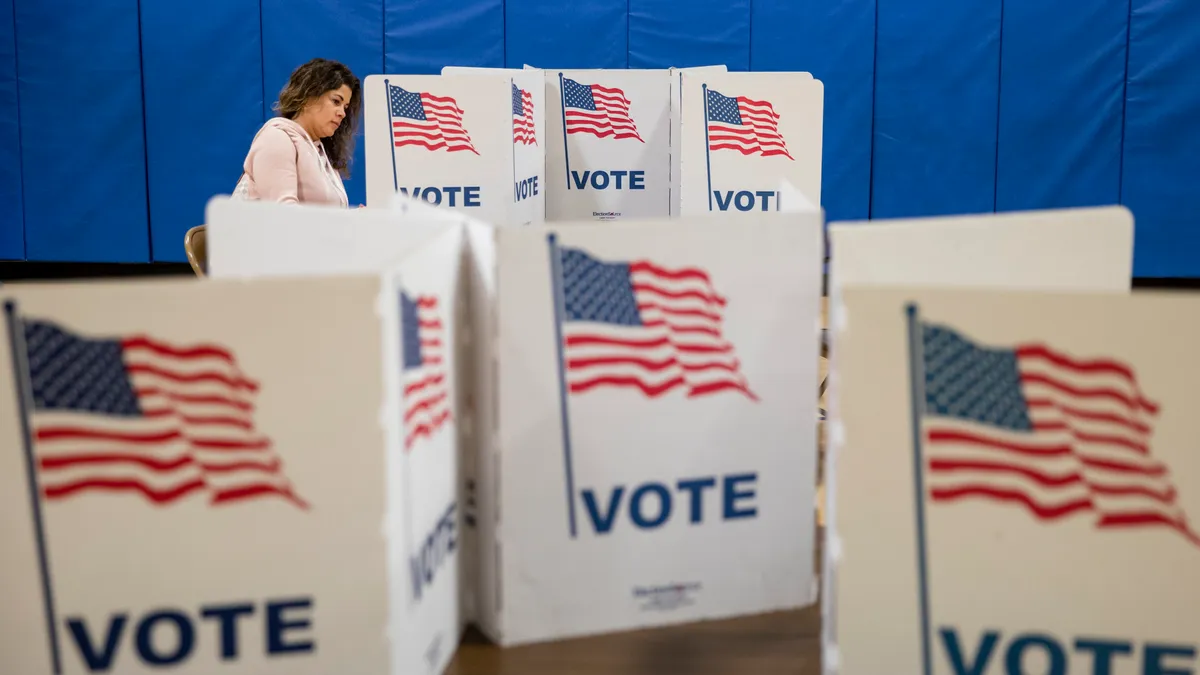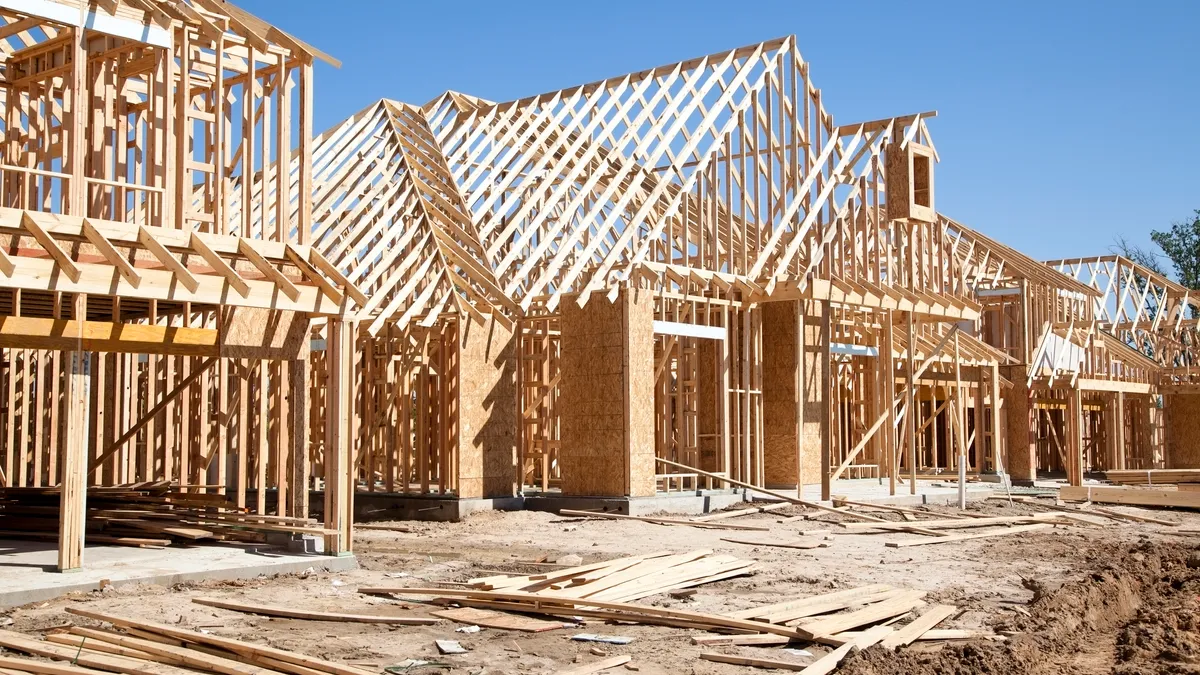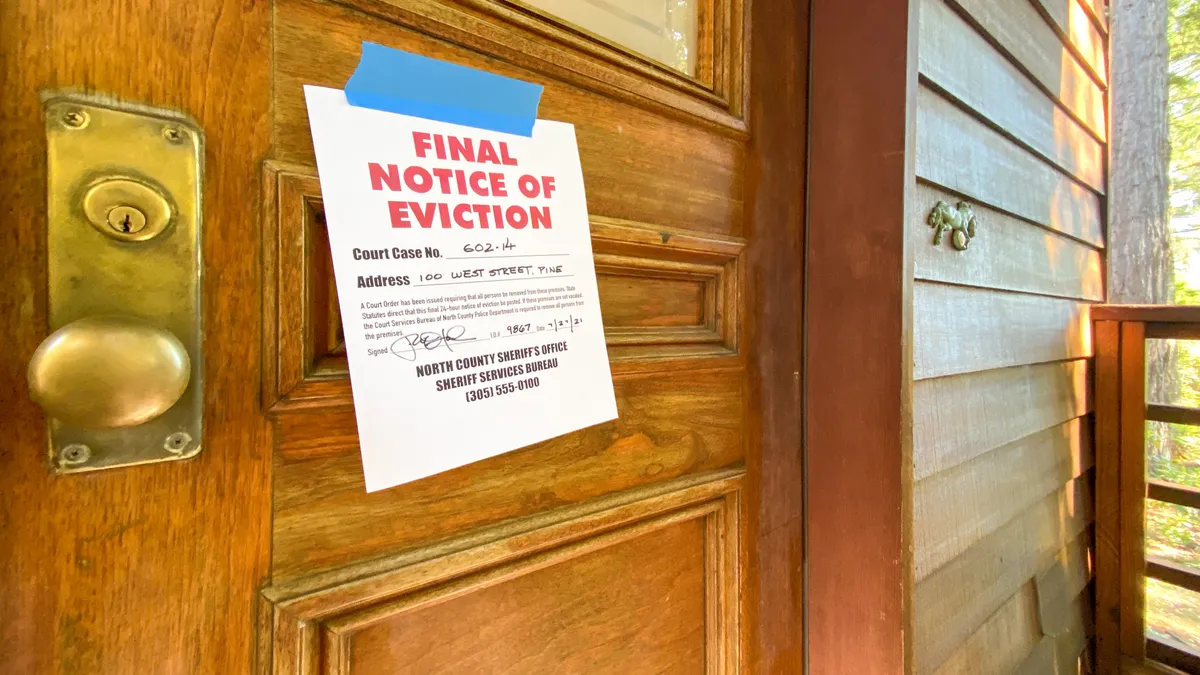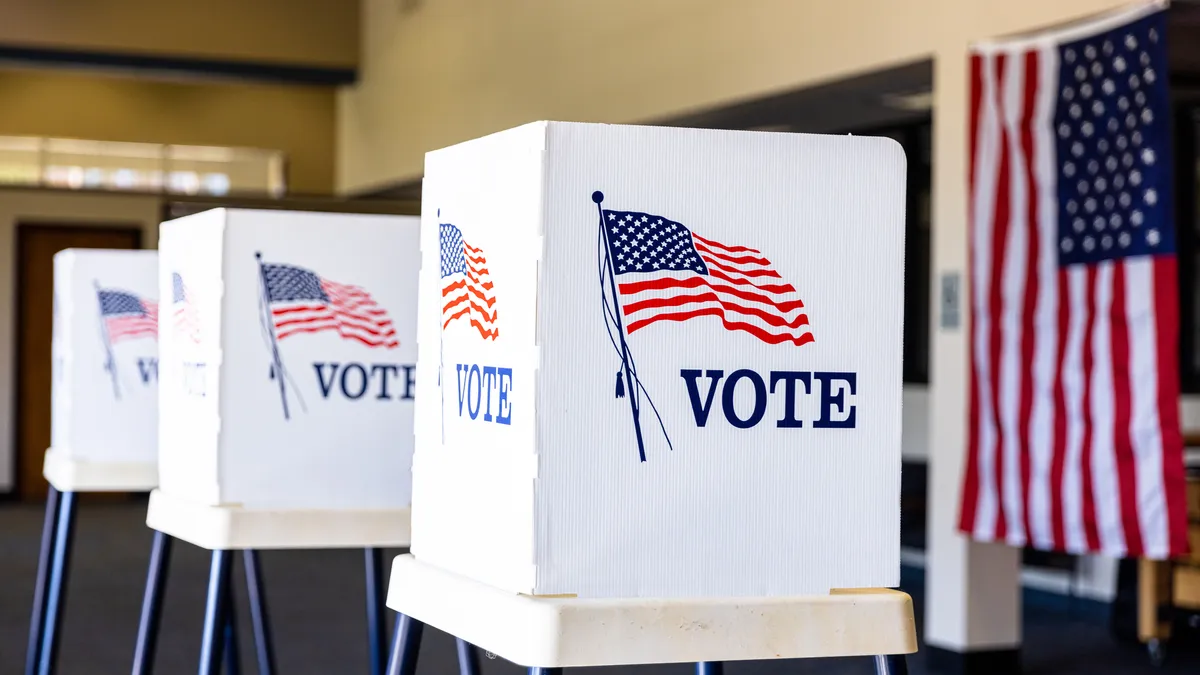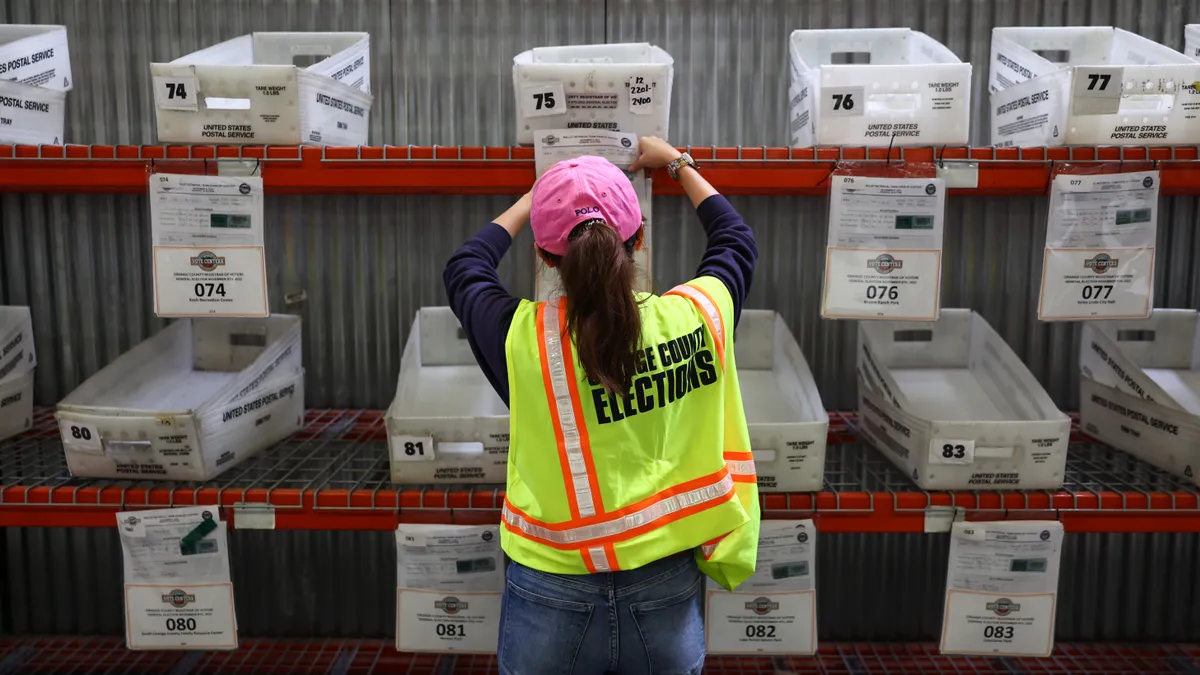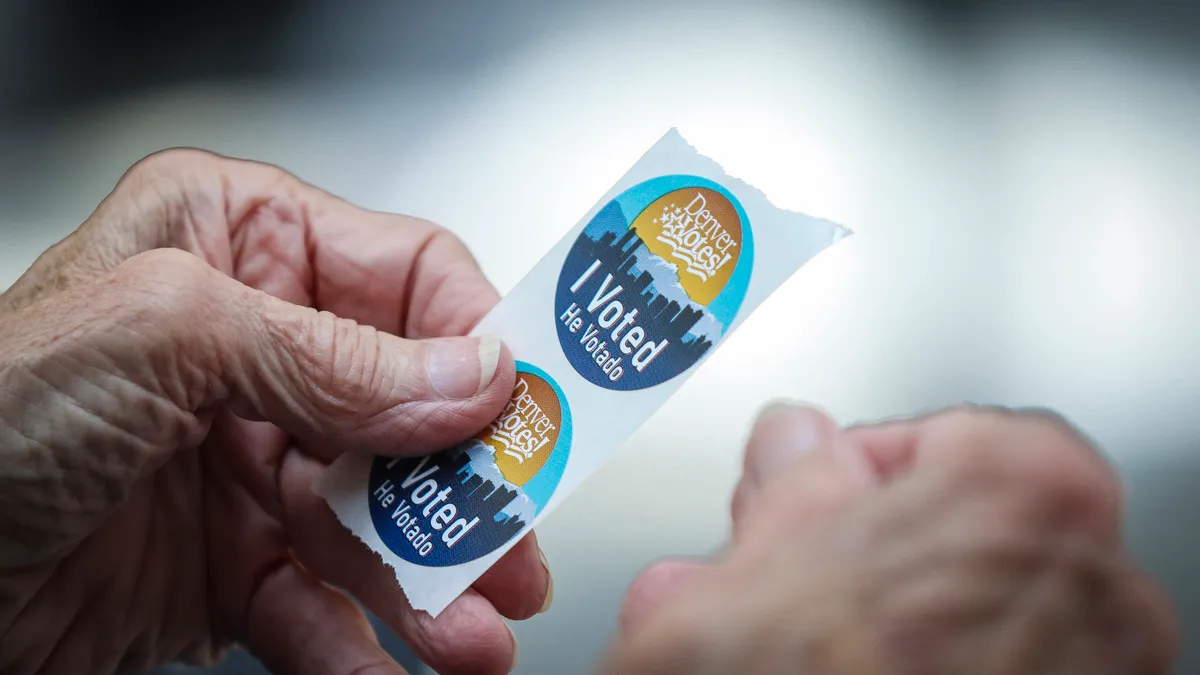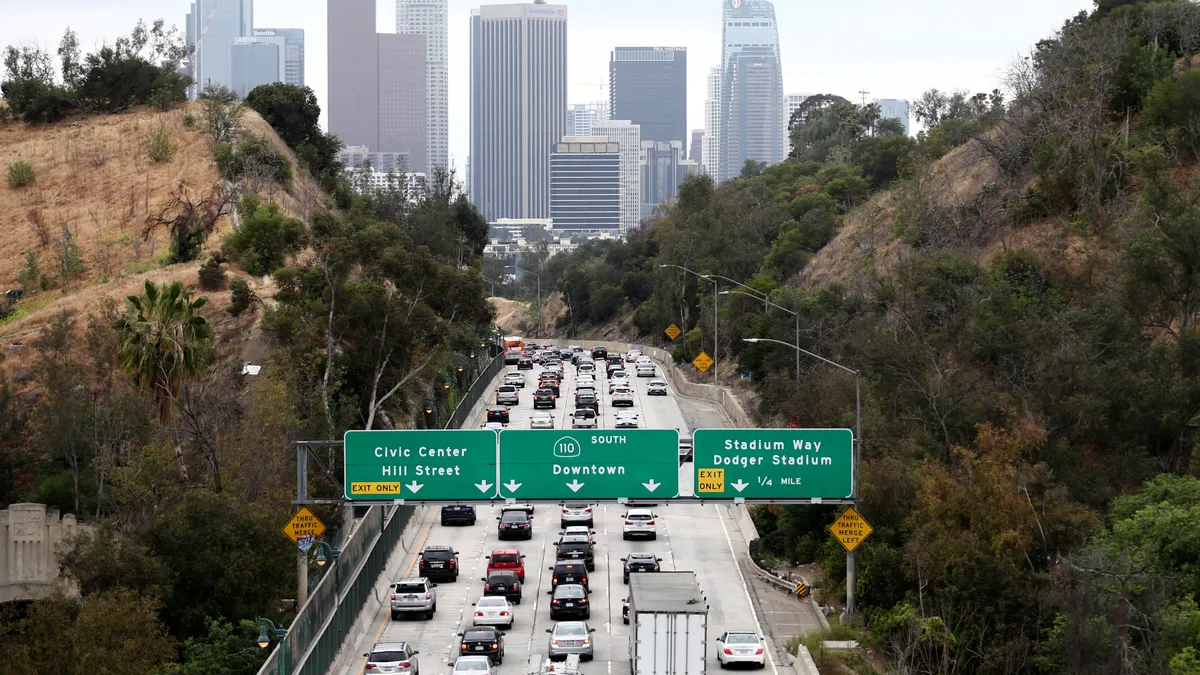This is the first in a series on local and state ballot initiatives in 2022. An in-depth look at statewide measures will follow.
Each year, voters are asked to give a thumbs up or down on a variety of transportation-related measures on state, city and county ballots. Often these involve income, property or sales tax levies, with funds dedicated to highways, streets or public transit.
Local funding is critical for cities and counties looking to tap most federal transportation grant programs. While programs differ, many require local governments to put up 20% of the project cost.
According to data compiled by the American Public Transportation Association, voters approved 15 of 17 ballot measures put forward in elections that occurred earlier this year. “The fact that these moderate-scale cities continue to have residents who want to vote for these projects is definitely a sign of general support for transit investment,” said Yonah Freemark, senior research associate at the Urban Institute and publisher of The Transport Politic website, which monitors local elections.
Here are the key state, county and city measures up for vote in November.
California
- Sacramento County Measure A would add a 0.5% sales tax over 40 years, bringing $8.5 billion for road maintenance, new roads and expansion of the Sacramento Regional Transit light rail system.
- Fresno County’s Measure C renewal would continue a one-half cent sales tax for an additional 30 years, generating an expected $6.8 billion, the majority of which would go to roads. Urban and rural public transit would receive $812 million over that period. Clean transportation projects and programs, transit-oriented development, and other projects to improve air quality and address climate change would get $144 million. Programs to improve bike and pedestrian safety would get $75 million over 30 years ($2.5 million per year).
- San Francisco looks to renew a half-cent sales tax for another 30 years, bringing in $2.6 billion. Unlike most other plans, less than 19% of revenues would go to streets and freeways. Major funding recipients include the San Francisco Municipal Transportation Agency, Bay Area Rapid Transit, Caltrain commuter railroad and ferries.
Florida
- In Orange County, Florida, home to Orlando, a 1-cent sales tax increase for 20 years would raise $11.9 billion over that period, with 45% of revenues devoted to transit. Cities within the county would get 10% of funds for roadways, safety, operations and maintenance, with the remaining 45% going to the county for the same purposes.
Meanwhile, a 1-cent sales tax was slated to be on the Nov. 8 ballot in Hillsborough County, which includes Tampa. But a circuit court judge struck down the referendum on Oct. 10 as being "ambiguous and misleading." The measure would have devoted 45% of funds to the Hillsborough Area Regional Transit Authority, with the rest split among the county, three cities and the Hillsborough Transportation Planning Organization.
The ruling came in response to a lawsuit filed by Karen Jaroch, a Northdale, Florida, resident who co-founded No Tax for Tracks, a community organization opposing the additional transit funding.
This is the second time the county’s transportation funding has been blocked by the Florida courts. In 2018, voters passed a similar referendum by a 57% to 43% margin, but it was struck down by the Florida Supreme Court in 2021 after $570 million had already been collected.
The local pro-transit group All For Transportation posted Tuesday on its Twitter feed, “The only losers today are the residents of Hillsborough County who have again had their opportunity to fix our broken transportation system delayed. We will continue to pay the high price of doing nothing and the call for action will only grow louder.” The Hillsborough County Commission called an emergency meeting for Thursday to discuss next steps.
North Carolina
- New Hanover County, North Carolina, which includes the city of Wilmington, has a quarter-cent sales tax initiative on the November ballot. The tax would raise $144 million over 10 years to support the Cape Fear Public Transportation Authority and fund bike and pedestrian paths. Funds would also help realign an existing freight rail route to avoid some of Wilmington’s most densely populated areas.
Colorado
- Boulder County has proposed extending the current 0.1% transportation sales tax that expires on June 30, 2024. More than half the $121 million in funds raised over the following 15 years would go to roadway safety and resilience. Transit would get 15% of funds, as would regional trails and commuter bikeways, with the balance going to multimodal regional corridors and community mobility programs.
- Eagle County, Colorado looks to improve its transit system to provide greater access for residents to jobs, schools, medical care, recreation and other community services by creating a regional transportation authority. Voters will be asked to approve a half-cent sales tax increase that is expected to generate $11.5 million annually. Funds would support increased frequency during peak times, bus electrification and a fare-free zone from Edwards to Vail.
Michigan
- Huron County looks to raise funds for the Huron Transit Corporation through a six-year property tax levy of $0.20 per $1,000 of home taxable value.
- Macomb County, Oakland County and Wayne County are all asked to vote on a 10-year property tax hike of 95 cents per $1,000 in taxable value to support the Suburban Mobility Authority for Regional Transit, which serves suburban Detroit. The tax is estimated to bring in $20 million during the first year.



